Filter by
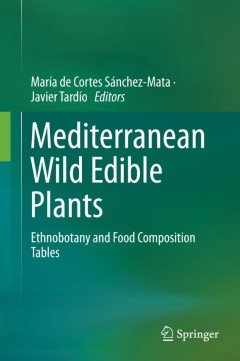
Mediterranean Wild Edible Plants
Dr. María de Cortes Sánchez-Mata, PhD in Pharmacy, is currently a professor in Food Science at the Faculty of Pharmacy, Complutense University of Madrid, Spain. She has performed a continuous research on the analysis of nutrients, antinutrients and bioactive compounds in plant foods, with the focus on human health promotion. Dr. Javier Tardío, PhD in Agricultural Engineering, is currently…
- Edition
- 1
- ISBN/ISSN
- 978-1-4939-3327-3
- Collation
- -
- Series Title
- Mediterranean Wild Edible Plants
- Call Number
- XII, 478
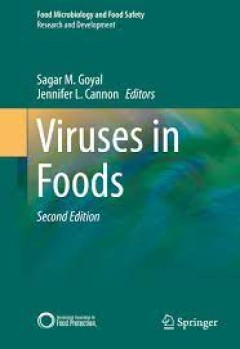
Viruses in Foods
Foodborne viruses are an important group of pathogens recognized to cause significant disease globally, in terms of both number of illnesses and severity of disease. Contamination of foods by enteric viruses, such as human norovirus and hepatitis A and E viruses, is a major concern to public health and food safety. Food Virology is a burgeoning field of emphasis for scientific research. Many de…
- Edition
- -
- ISBN/ISSN
- 978-3-319-30723-7
- Collation
- XIII, 512
- Series Title
- -
- Call Number
- -
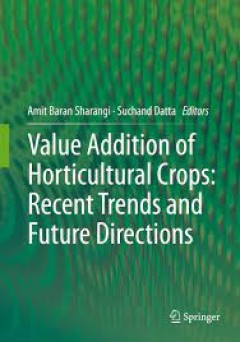
Value Addition of Horticultural Crops: Recent Trends and Future Directions
This book combines several ideas and philosophies and provides a detailed discussion on the value addition of fruits, vegetables, spices, plantation crops, floricultural crops and in forestry. Separate chapters address the packaging, preservation, drying, dehydration, total quality management and supply chain management of horticultural crops. The book explains value addition as a process of in…
- Edition
- -
- ISBN/ISSN
- 978-81-322-2262-0
- Collation
- XIV, 342
- Series Title
- -
- Call Number
- -
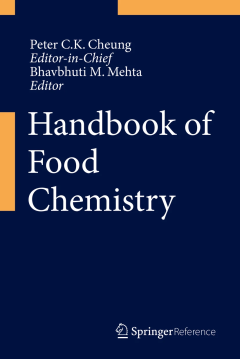
Handbook of Food Chemistry
This handbook is intended to be a comprehensive reference for the various chemical aspects of foods and food products. Apart from the traditional knowledge, this book covers the most recent research and development of food chemistry in the areas of functional foods and nutraceuticals, organic and genetically modified foods, nonthermal food processing as well as nanotechnology. This handbook con…
- Edition
- -
- ISBN/ISSN
- 978-3-642-36604-8
- Collation
- XXIII, 1173 halaman
- Series Title
- -
- Call Number
- 574.13 HAN
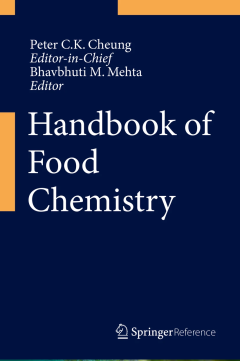
Handbook of Food Chemistry
This handbook is intended to be a comprehensive reference for the various chemical aspects of foods and food products. Apart from the traditional knowledge, this book covers the most recent research and development of food chemistry in the areas of functional foods and nutraceuticals, organic and genetically modified foods, nonthermal food processing as well as nanotechnology. This handbook con…
- Edition
- -
- ISBN/ISSN
- 978-3-642-36604-8
- Collation
- XXIII, 1173
- Series Title
- -
- Call Number
- 574.13 HAN
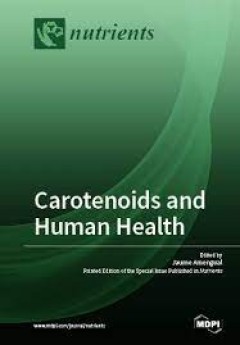
Carotenoids and Human Health
Carotenoids are a group of approximately 600 compounds synthesized by photosynthetic organisms. These pigments are abundant in fruits and vegetables, as well as in certain animal products such as eggs and salmon, being responsible for their colorful appearance. The bioactive properties of certain carotenoids in human health are clear, as some of these compounds have antioxidant properties and s…
- Edition
- -
- ISBN/ISSN
- 978-3-03921-833-2
- Collation
- -
- Series Title
- -
- Call Number
- 572 CAR
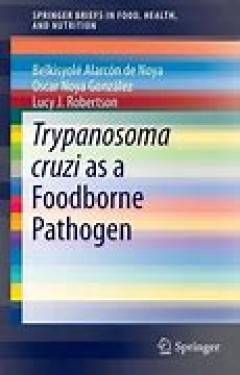
Trypanosoma cruzi as a Foodborne Pathogen
This Brief provides a comprehensive overview of Trypanosoma cruzi, a parasite that is traditionally considered as exclusively vectorborne, but can be foodborne, and may lead to outbreaks of Chagas disease in consumers. The characteristics of Trypanosoma cruzi and the clinical effects of the disease are covered, including documented outbreaks, regional patterns, and epidemiology. The various tra…
- Edition
- -
- ISBN/ISSN
- 978-3-319-23410-6
- Collation
- 5 illustrations in colour
- Series Title
- -
- Call Number
- -
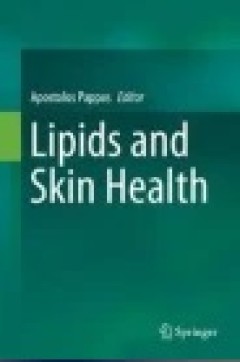
Lipids and Skin Health
Lipids and Skin Health is the first effort to summarize and review the studies, ideas, and research that link lipid metabolism to the largest organ of our body, the skin. The book covers the fundamental biology of the skin, and the major involvement of the transcriptional factors that govern lipid synthesis and the bioactive lipids in this intriguing organ. All layers of skin are presented, as…
- Edition
- -
- ISBN/ISSN
- 978-3-319-09943-9
- Collation
- -
- Series Title
- -
- Call Number
- -
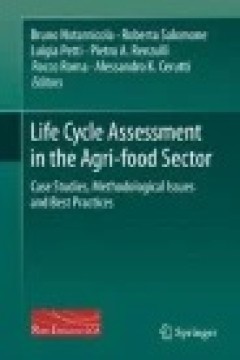
Life Cycle Assessment in the Agri-food Sector: Case Studies, Methodological I…
The book presents an overview of the International practices and state-of-the-art of LCA studies in the agri-food sector, both in terms of adopted methodologies and application to particular products; the final purpose is to characterise and put order within the methodological issues connected to some important agri-food products (wine, olive oil, cereals and derived products, meat and fruit) a…
- Edition
- -
- ISBN/ISSN
- 978-3-319-11940-3
- Collation
- -
- Series Title
- -
- Call Number
- -
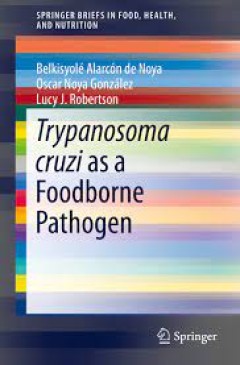
Trypanosoma cruzi as a Foodborne Pathogen
This Brief provides a comprehensive overview of Trypanosoma cruzi, a parasite that is traditionally considered as exclusively vectorborne, but can be foodborne, and may lead to outbreaks of Chagas disease in consumers. The characteristics of Trypanosoma cruzi and the clinical effects of the disease are covered, including documented outbreaks, regional patterns, and epidemiology. The various tra…
- Edition
- -
- ISBN/ISSN
- 978-3-319-23409-0
- Collation
- XI, 92
- Series Title
- -
- Call Number
- -
 Computer Science, Information & General Works
Computer Science, Information & General Works  Philosophy & Psychology
Philosophy & Psychology  Religion
Religion  Social Sciences
Social Sciences  Language
Language  Pure Science
Pure Science  Applied Sciences
Applied Sciences  Art & Recreation
Art & Recreation  Literature
Literature  History & Geography
History & Geography